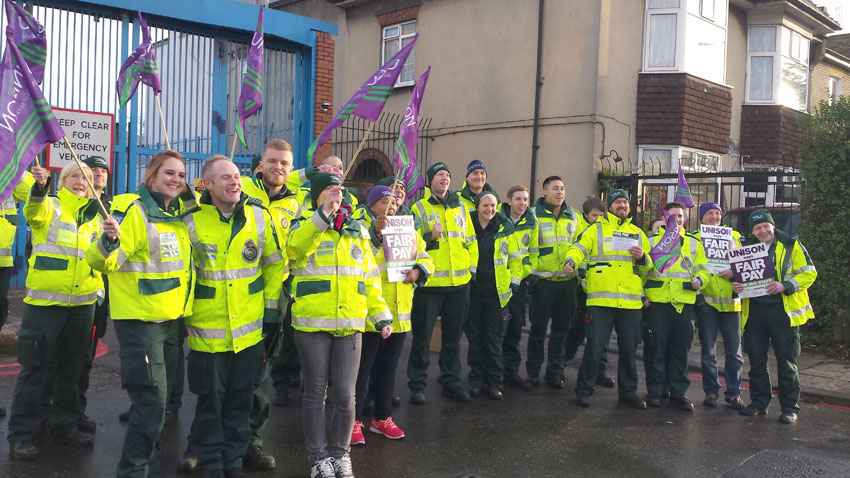
PATIENTS are being put at ‘catastrophic risk’ of harm due to ambulance handover delays, NHS managers warned yesterday.
West Midlands Ambulance Service (WMAS) has raised its risk rating for such delays to its highest level for the first time in its history.
That risk rating shows the trust believes patient harm is ‘almost certain’ due to the handover hold-ups.
Mark Docherty, director of nursing and clinical commissioning, said it was a ‘completely unacceptable situation’. It came as a patient died after waiting more than five hours in the back of an ambulance in Worcestershire.
At a meeting on Wednesday, the ambulance service’s board of directors heard the amount of time being lost to delays had reached previously unseen levels, the Local Democracy Reporting Service said.
And Docherty warned the situation was set to get worse over the coming months as a result of winter pressures.
‘Despite everything we are doing by way of mitigation, we know that patients are coming to harm as a result of delays,’ he said.
‘We know that there are patients that are having significant harm and indeed, through our review of learning from deaths, we know that sadly some patients are dying before we get to them.’
Docherty said additional front-line resources had been deployed in an effort to get to more patients.
But he added: ‘If we follow the trajectory that winter normally follows it’s only going to get worse, and we will lose so many hours in December, January and February that it’s difficult to see how we will be able to respond to some patients in a time frame that’s acceptable.’
The meeting heard that in September 1,375 hours were lost by crews stuck outside the Royal Shrewsbury Hospital, while at the Princess Royal the number of lost hours was 768. They contributed to a total of more than 16,000 lost hours across the West Midlands that month.
Meanwhile, hospitals in England have been ordered to ‘eliminate’ ambulance queues outside hospitals following the death at Worcestershire Royal Hospital and another death of a patient in an ambulance outside Addenbrookes Hospital in Cambridgeshire.
A letter from NHS England to all acute hospitals stated handover delays represent ‘unacceptable clinical risk’ for both patients waiting in ambulance queues and those in the community whose emergency care is delayed.
Martin Flaherty, managing director of the Association of Ambulance Chief Executives, said the ambulance sector is experiencing ‘some of the highest levels of emergency activity in its history’ and the association ‘remains extremely concerned about the unprecedented levels of hospital handover delays which are occurring across the UK’.
- Patients at a London hospital are facing waits of up to eight hours at A&E, health leaders say.
Director of strategy at London North West University Healthcare NHS Trust (LNWH) Simon Crawford said Northwick Park Hospital is still ‘under pressure’ following the Covid-19 pandemic.
He explained patients can be waiting for up to eight hours after they’ve arrived at the urgent treatment centre (UTC). According to the NHS, UTCs are ‘equipped to diagnose and deal with many of the most common ailments people attend A&E for’.
Crawford noted anyone coming to the hospital with a serious condition would be ‘fast tracked’.
But he said there needs to be alternative options to deal with the number of people arriving at the UTC to help manage the wait times.